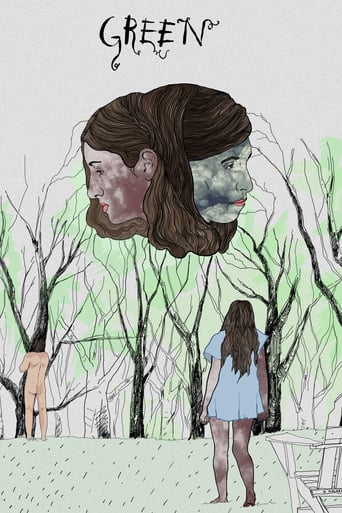dissident320
You can call it a movie I guess. This was released a bit before the mumblecore craze started to happen. It seems to be in that vein though of having a story and just riffing on scenes. The director plays a seemingly naive girl with an accent that comes and goes. I doubt anyone wanted to coach her on it so it's about as good as Tarantino's Aussie one in Django.Get ready for lots of wide shots. Wouldn't want to have to shoot coverage. And when you do finally get in close better just pan and tilt the camera around so you don't have to do any of that annoying cutting. Also if the "actors" misspeak, you can just keep it in. They probably only did 1 or 2 takes for everything. I hope this movie came out exactly how she expected because it's barely a page of story. Boring, underwritten, poorly acted. Nothing to enjoy here. It's short at least.
yasagh-1
when the narration builds on personal experience pieces which projects intense emotions, the sublime leaks through scenes. with the theme, main plot and the suspense style, green reminds me trier's Antichrist inevitably. another reason for this similitude is the creators' huge bloody pieces which brings their intense fear and desires to their artworks.this is a story which only can be filmed by a young and talented director with its consistent theme-sense collaboration, multidimensionality of characters, almost surprisingly successful script (especially in context of exposition) and the bravery of the suspense increaser wide shots and the use of the unexpectedly light climax. the choice of the resolution is still a question mark for me but that's also another good point for the film to be "lively".
glgehman
I just saw Green at the Philadelphia Film Festival (Filmadelphia 20). The green of the title refers to envy or jealousy, but I won't say much more about the story than that. It's a tiny movie filled with three really excellent performances. Writer/director Sophia Takal plays Robin, a rustic chatterbox who barges into the lives of farmsteading New Yorkers Sebastian and Genny, played by Lawrence Michael Levine and Kate Lynn Sheil. Told in lengthy, real-time scenes we see the changing dynamics of their relationship as Robin's forthright ingenuousness thaws the standoffish cityfolk. But it isn't long before Genny begins to suspect, or at least imagine, there might be more to Robin's friendship than is healthy for her own relationship.The film lives on the strength of its performances. Sheil's Genivieve is the most arresting. Both Sebatian and Genny suffer a kind of sensory deprivation in the wilds of Virginia where the nearest Barnes and Noble is 45 minutes away. But while Sebatian has his citizen farmer blog to occupy his time, Genny suffers the fate of every Plus One. She's not her own woman and as an appendage, she is vulnerable to feelings of resentment and abandonment. At first content in her solitude, she soon comes to welcome Robin's overtures of companionship. Later, when she feels her identity threatened, she lashes out; not physically, but in bitchy, verbal assaults. All these changes play out on her face as the film progresses and her internal stress mounts.Sebastian is quite thoroughly unlikeable. Played archly by Levine, he is every opinionated jerk intellectual we went to college with. But as the film progresses and Genny's reactions toward Robin turn chill, Sebastian surprises us with reserves of empathy and caring we might not have expected. Maybe he's just being polite, but at least it's an effort he chooses to make.Takal's Robin is the catalyst for these performances. She has a lot on her plate, this girl. Working days - sometimes nights - for a veterinary hospital and also at a local diner, she still finds time to drop by the farm with a bag of groceries and a six-pack of beer. She gushes revelatory self-history with anyone who will listen and looks at the world with big, acute, brown eyes that reveal she's no dummy; she's just drawn that way. If the New York sophisticates take her as a joke, or as a pest, she doesn't seem to mind. She knows who she is and is OK with that.Nandan Rao's canny camera-work deals in close-up, but moves fluidly around carefully composed tableaux, catching the actors at their intimate moment of revelation. There is no MTV-style hand-held stuff here. It's stick work, very classical in nature. In fact, the whole film hearkens back to the way movies were made in the pre-sound era: Composed and rehearsed among the company of actors and then performed before a rolling film gate. Aside from titles, there's no need for post-production.It would be a shame if this movie didn't find distribution; I saw this film immediately after a screening of Lars Von Trier's latest excess and it was a welcome palate cleanser. A movie that made me wish I could make movies; and suggesting that I - or anyone with a story and some creative hard work - actually can.



